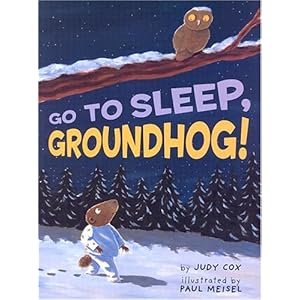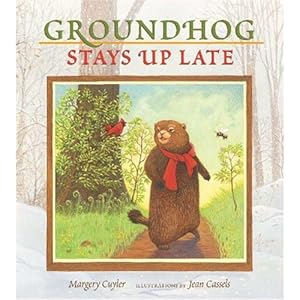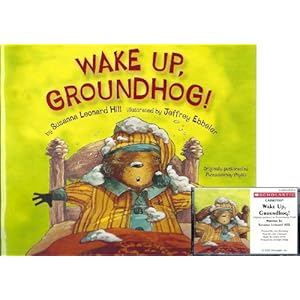Yesterday was the Dublin Literacy Conference. This is my favorite conference every year. The educators in Dublin City Schools work so hard to create this amazing conference. We are quite fortunate to live so close and have the opportunity to participate. This conference is always full of professional conversation. I enjoy getting to catch up with old friends and meeting new people. The speakers are always amazing. There are always many professional authors, as well as authors and illustrators of children's literature, in attendance.
With Twitter this year I realized how much great learning was going on in sessions I was unable to attend as well. It's impossible to see everyone you want to see at the Dublin Literacy Conference. As you read below, you will see some of the learning I was able to take away from the sessions I attended. In an effort to see what I missed I have linked to some of the posted presentations at the end of this post. Additionally, I will try to continue to add reflections from other blogs as they are posted. (If you have posted, but are not listed, please comment & I will add your information to this post.)
Oh, if you didn't know, I LOVE MY BAG!
Kelly Gallagher
Readicide: How Schools are Killing Reading and What You Can Do About it
Sessions at Dublin Literacy Conference were kicked off my Kelly Gallagher. This was my first time to hear Kelly speak and he was fabulous. His keynote was the perfect balance of information, inspiration, and humor. I've read Reading Reasons, but I think I'm going to have to get my hands on a copy of Readicide now. Kelly talked about how our world of testing - and the fact that we often teach to that world - is creating students who have a hard time analyzing, synthesizing, and evaluating information. He believes that if we teach students to read and write well, they will do well on tests. However, if we teach students to test well, they will not become readers and writers. (Troy Hicks posted notes to this session.)
Patrick Allen
What Brings About a Good Conference Anyway?
After meeting Patrick Allen at NCTE, reading his book Conferring: The Keystone of Reader's Workshop, and following him on Twitter (@coloreader), I was looking forward to hearing him speak at the Dublin Literacy Conference. As I figured it would be, Patrick's discussion was a delightful combination of story and smart teaching practice. I think Reader's Workshop is such an important part of our learning day, and strongly believe that my readers benefit from the combination of focused instruction, choice, time, and community that is a part of all we do. Students in Reader's Workshop don't just learn to read, they are able to develop their reading lives. It's bigger than just reading.
However, I find conferring effectively to be one of the toughest challenges. Sometimes I worry about whether or not I am giving students all they need? Conferring in Reader's Workshop is more challenging for me than conferring in Writer's Workshop where the concreteness of the child's work is so visible. Patrick is currently thinking about body language in conferring and suggested video taping our conferences. (Audio taping was scary enough, Patrick! Not sure I can watch my conferences too.)
Patrick talked about aspects of our reading community that must be in place for conferring to occur successfully. I was nearly on the floor laughing as Patrick explained how, as teachers, we can often be much like a yard sprinkler as we confer. We are talking with the child, we pause, look around the room, and voice sh-sh-sh-sh-sh.
Community Needs
- trust, respect and tone
- endurance and stamina
- purpose an audience
- gradual release of responsibility
This session was only 45 minutes, but I walked away with so many new questions as well as ways I want to be more intentional with my students during Reader's Workshop.
Brian Pinkney
The Rhythm of My Art
Brian kicked off his session with clarification of his talented family tree. It seems he is often confused with his father, Jerry. This was hilarious! Brian went on to talk about his life as an artist and tell about the work he does. It was interesting to listen to Brian's life in a creative family from his days with his father to how it is a part of his life as a father.
As an educator I was struck by the way he sees composition of story. Many of his points were so important for our young writers in our classrooms, as well as students who may be more visual learners. I will be thinking about these statements as I go back into our Writer's Workshop this week.
Brian Pinkney
- shared the importance of creativity.
- told us it is easier for him to write about something he knows a lot about.
- told us that it was important to him that his illustrations were "pictures that had to communicate" to the audience.
- shared, what I will call, visual essays in which he is "telling a story with pictures".
- always begins by drawing his stories first, "I start with sketching, I can see where the story is going."
- discussed the importance of tools, trying different tools, and finding favorite tools.
We also had the privilege of hearing Brian read aloud some of his stories. I always love to hear the author's voice in a story. It always somehow brings the story to life. Every pause is right. Every change in tone and volume draws the listener into the story. I would love to be able to read aloud Max Found Two Sticks and JoJo's Flying Side Kick to my students with all of the sounds and heart of Brian Pinkney.
Troy Hicks
If you've been following my blog, you know that in the last year I've been on a journey toward understanding technology (Technology: What Are the Questions to Ask?, Creating Meaning with Visual Images: It's a Snap, Right?) . I've never wanted to have technology be a part of classroom just to be able to say, "My students are using technology." I want technology to be like a pencil in my classroom, we use it because it just makes sense for what we are learning or creating. As technology has become more a part of what we do this year, I've realized how powerful it is within our community. It has given voice to my students, especially quieter students. It has also extended our classroom beyond the walls we work in each day.
Troy talked about creating digital spaces. Not just spaces in the digital world, but also physical spaces in our learning communities that allow for the collaboration, creation, and conversation required to compose digitally. He asked the question, "Are we asking kids to create something they couldn't create with pencil and paper?" I think this is an important question. I don't want technology to be another form of worksheet or low level written response in my classroom.
However, I also like to consider:
- Is it EASIER for student(s) to write/compose/create with technology?
- Is it possible to get student thinking to a larger audience with technology?
- Is it possible to create spaces for collaborative conversation with technology?
- Is it possible to create a more powerful piece (better quality product) with technology?
Troy shared so much in such a short time. If you'd like to view my notes, you will find other key points and many links.
In Summary
Whew, it's no wonder I was exhausted when I got home last night. Thanks to everyone in Dublin who helped make the conference possible. Thanks to the great speakers for sharing your thinking with all of us.
Other Session Information
- Picture Books Possibilities My Session with Katie DiCesare
- Dublin Literacy Conference (Why Children's Literature is Perfect for Teaching Mathematics) Mandy Robek
- How Can the Tools of the 21st Century Impact the Reading Workshop? Franki Sibberson
- The Best and Brightest Books of 2010 Karen Terlecky & Bill Prosser
- Crafting Digital Picture Books Tony Keefer
- Dublin: Literacy Stations in the Middle Grades by Mandy & Cheryl
- Web 2.0 Tools for Teachers by Scott Sibberson
Dublin Literacy Reflections
- Motivated, Inspired and Confirmed by Lisa at Two Learning Journeys
- Whew. by Mary Lee at A Year of Reading
- Enjoyed - Dublin Literacy Conference by Mandy at Enjoy and Embrace Learning
- Dublin Literacy Conference by Scott Sibberson
- Dublin Literacy Conference + #titletalk = Professional Recharge in a Weekend by Tony








